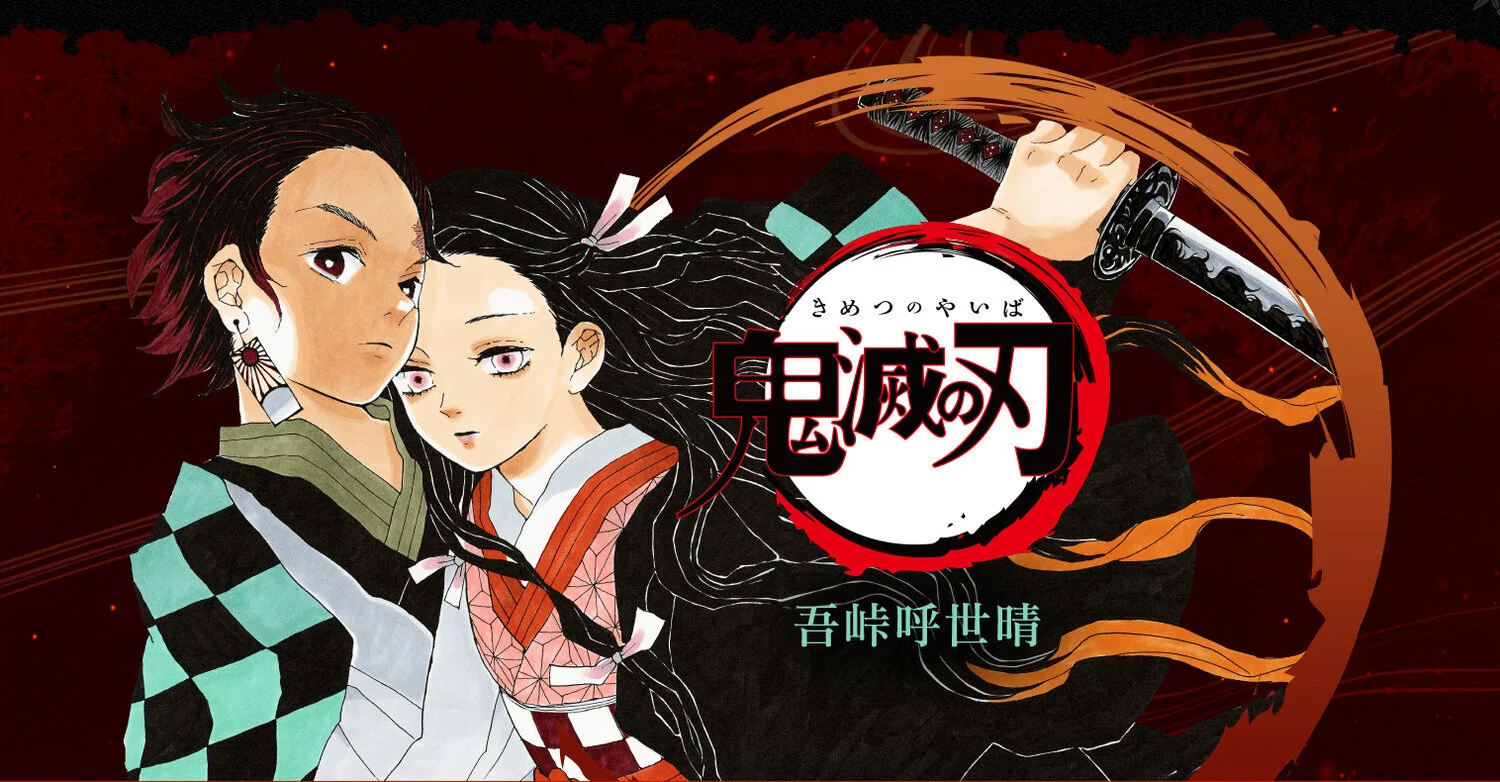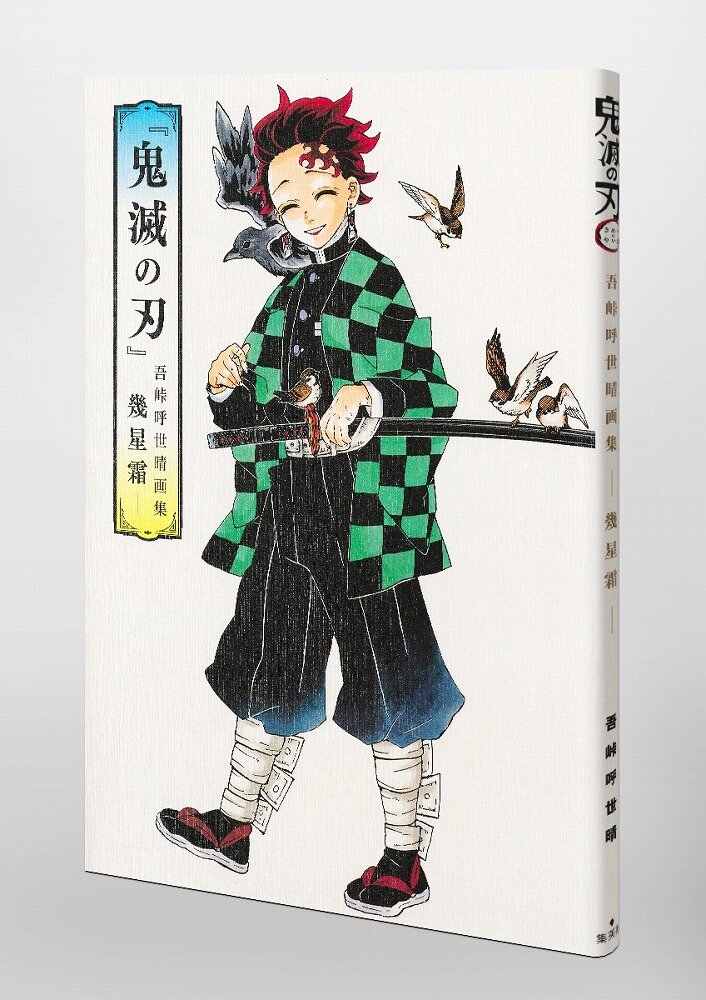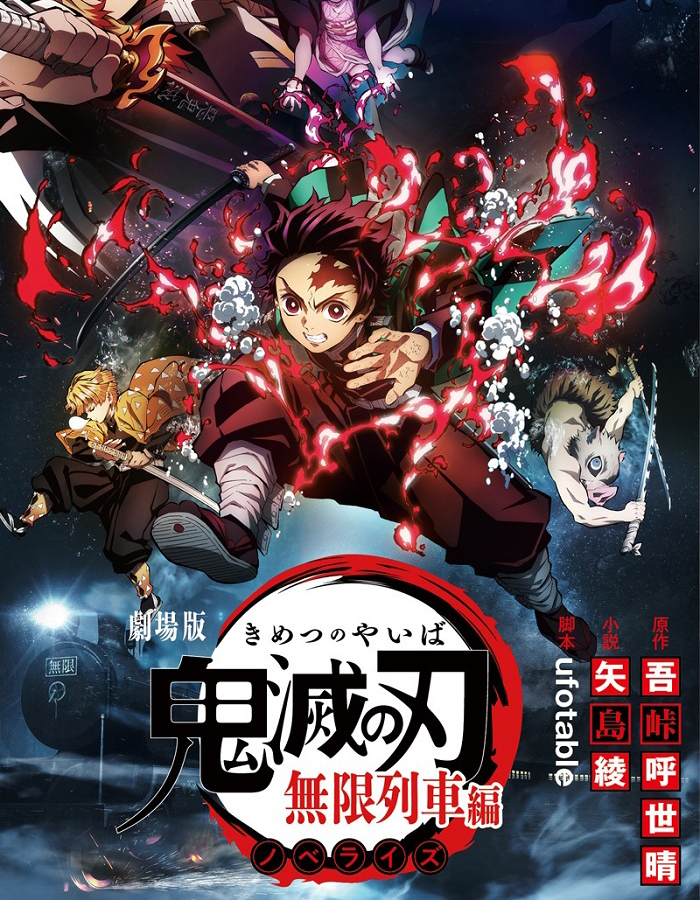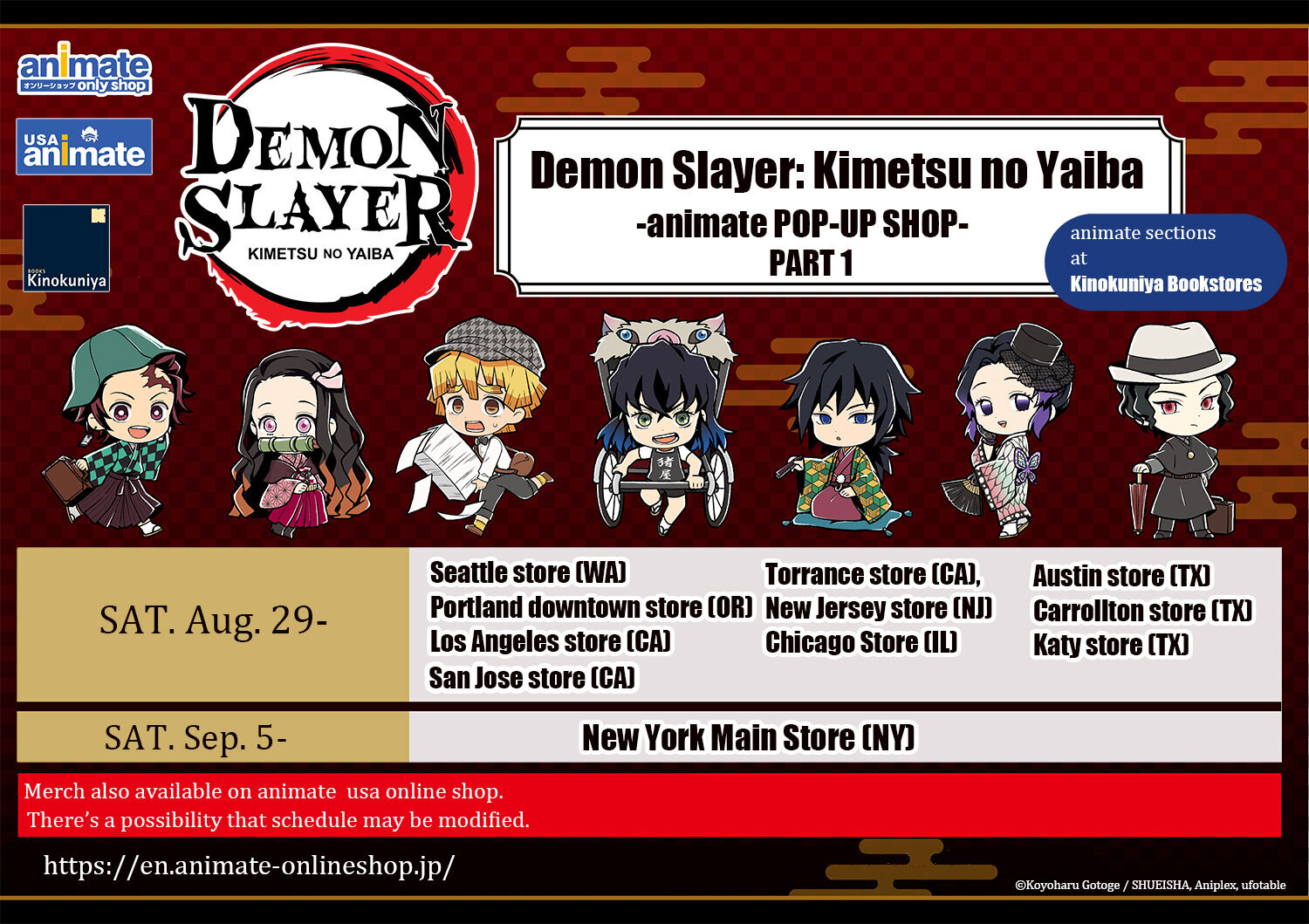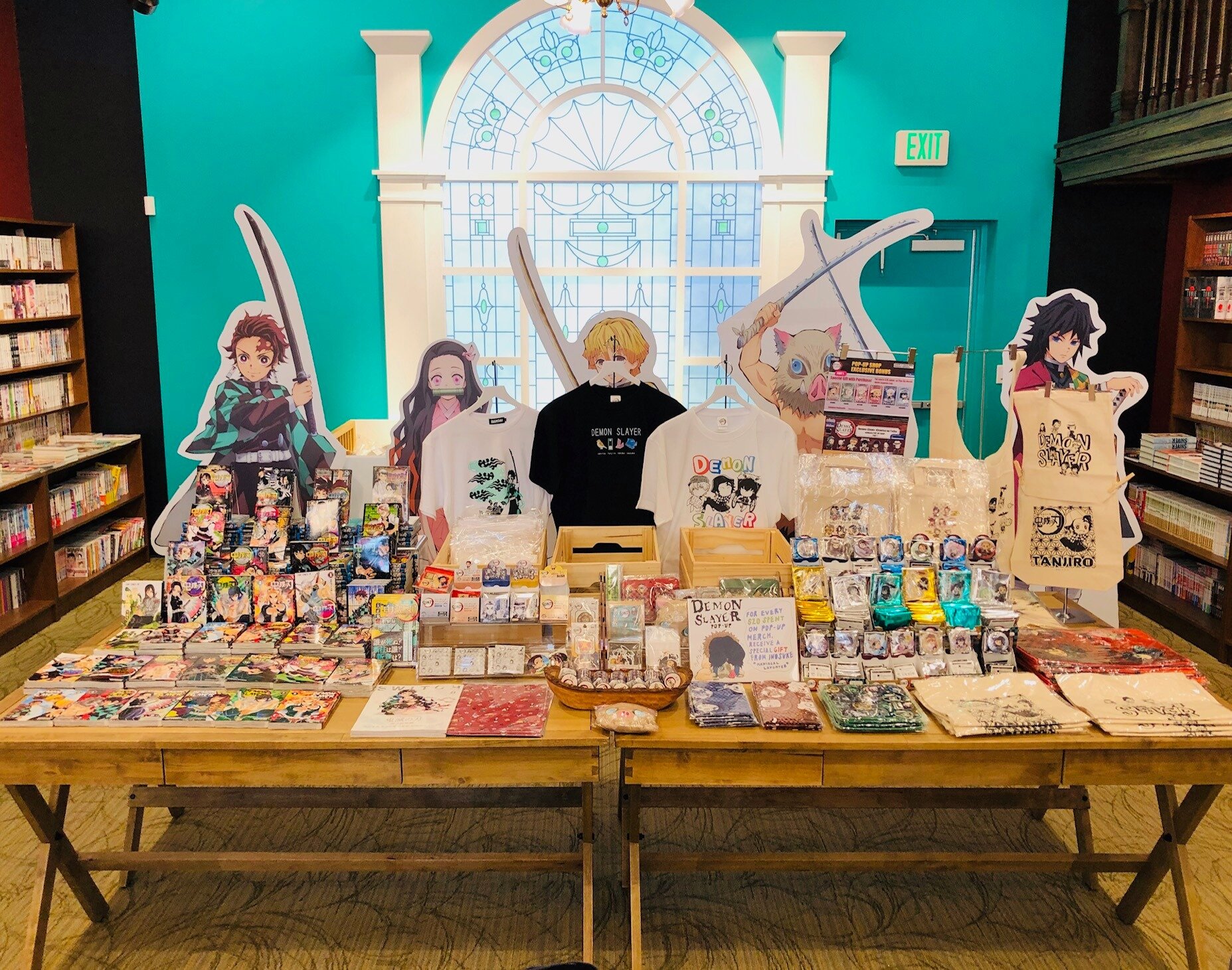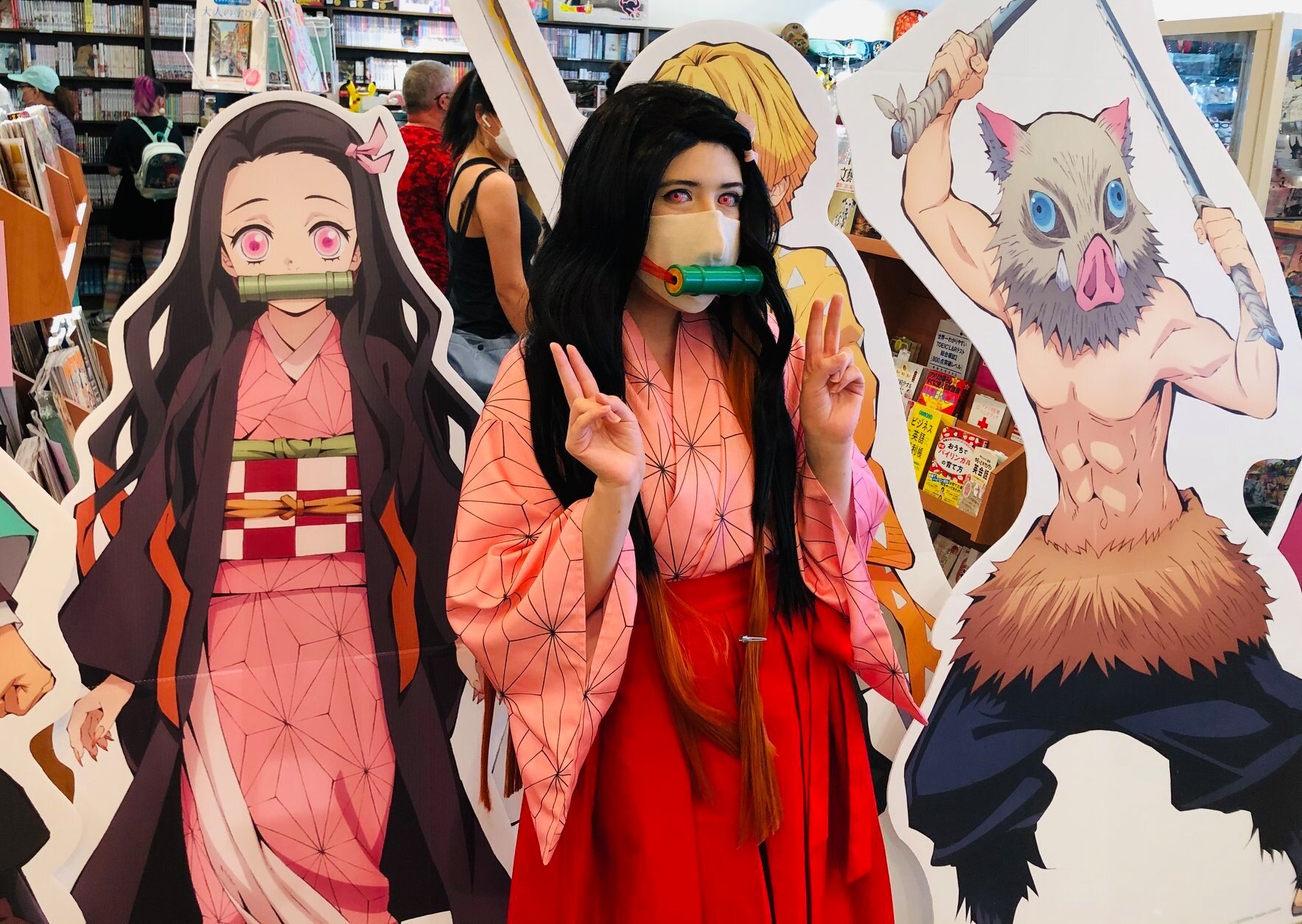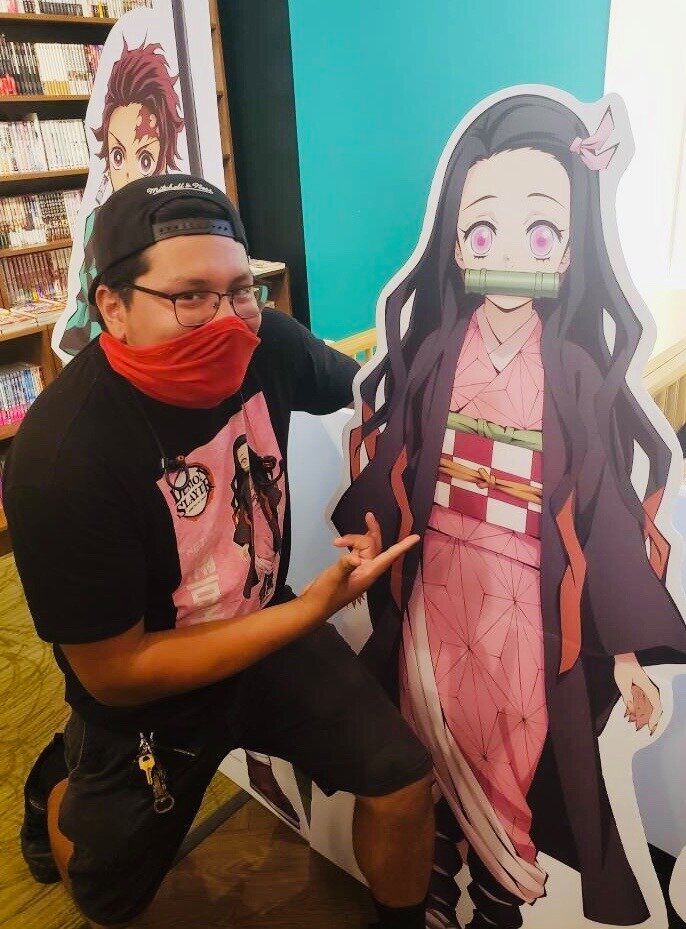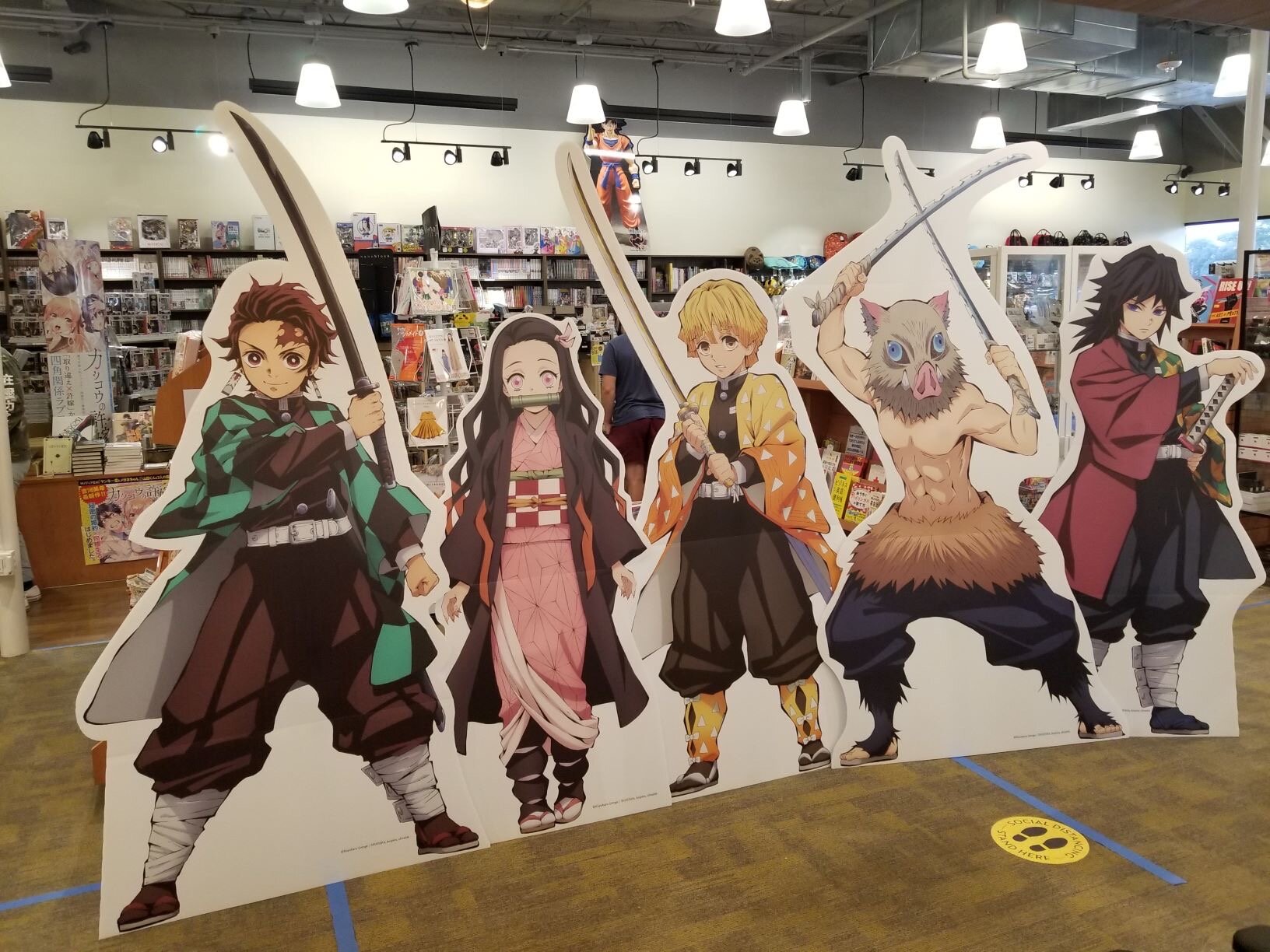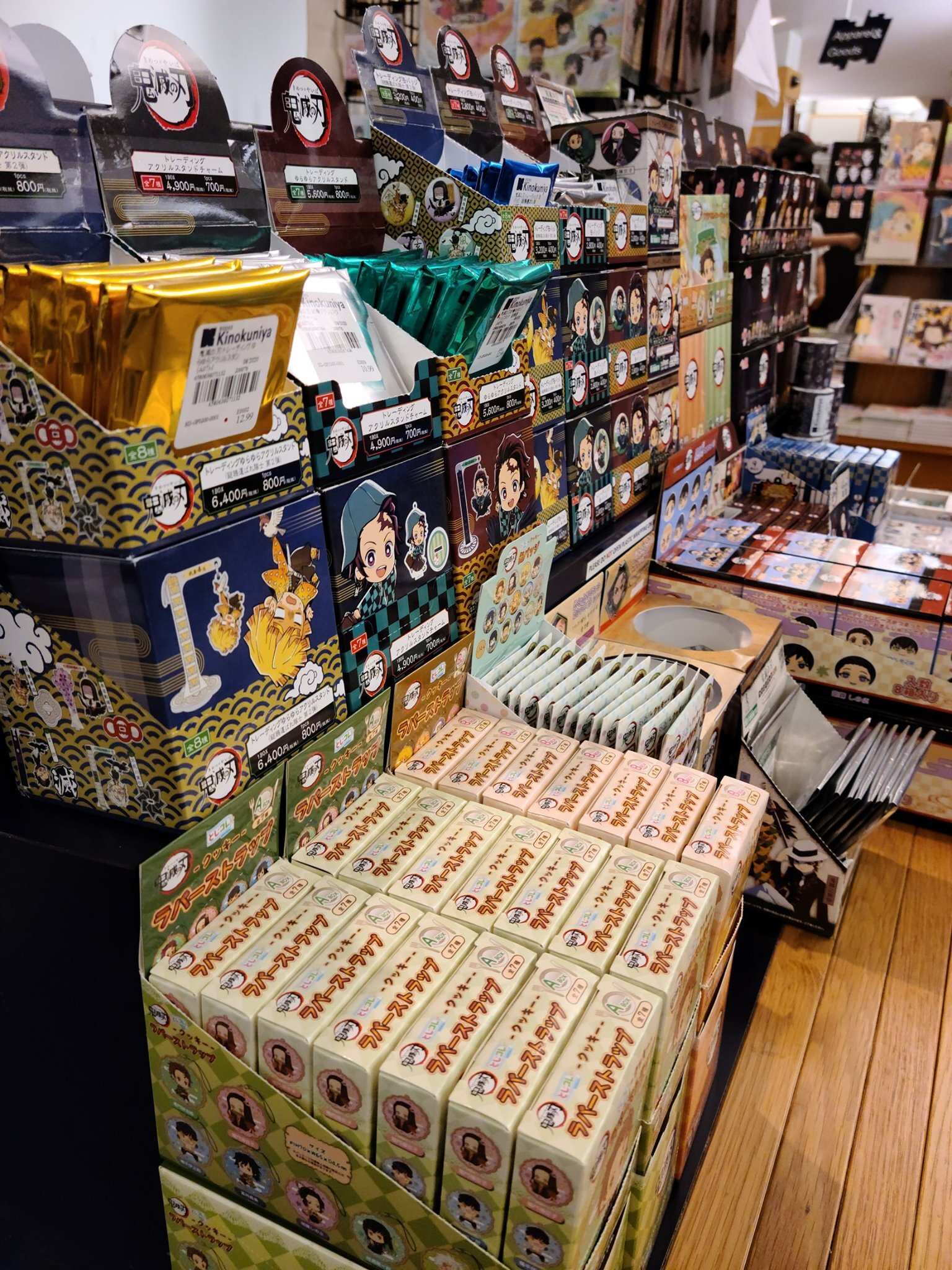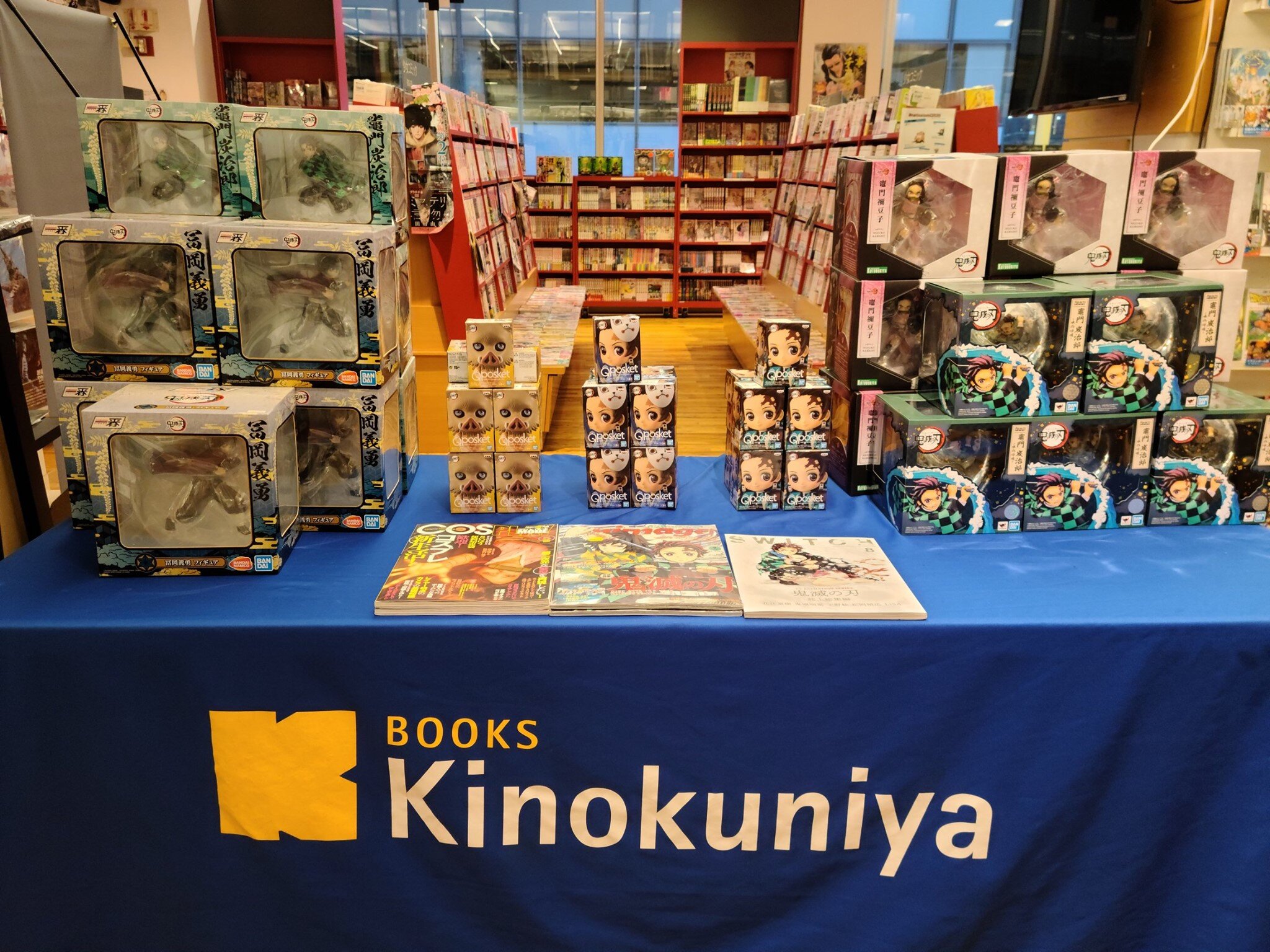Image from Shueisha
Kino Key Notes:
Demon Slayer
Koyoharu Gotouge’s Demon Slayer - Kimetsu no Yaiba began receiving its well-deserved recognition in 2020. Between receiving three wins and six additional nominations from Crunchyroll’s Anime Awards and an anime adaptation of the riveting manga, no one can dispute its status as a top-tier comic. Once Gotouge herself won the esteemed Noma Publishing Culture Award for aiding the publishing industry, the impact that Demon Slayer - Kimetsu no Yaiba had created was apparent, especially during the struggling year of COVID-19.
Young albeit strong manga roots…
The entire Demon Slayer manga series, titled “Kimetsu no Yaiba” in Japanese, finished nearly as quickly as it arrived in February of 2016. After only four years of its serialization in Shueisha’s Weekly Shonen Jump magazine, Creator Gotouge left fans pleading for more. This caused a lightning-speed reaction to meet demand with an art book, light novels, anime, stage plays, and merchandise.
The dark and mature underlying themes of the manga are often contested by its comical and child-friendly characters like the role-model lead, Tanjiro Kamado, or cowardly but endearing Zenitsu Agatsuma. Young readers will find themselves laughing hysterically at the latter along with the head-charging “boar,” Inosuke Hashibira. Mature readers will still be enthralled by the team’s adventurous motives leading them to explore the fantasy world filled with Japanese lore and mythology before vanquishing foes and protecting the human race.
All of these fantastic elements combine into something truly unique and special, further proven by frequent mentions in top lists like TV Asahi’s Top 100 Manga of All Time, placing #2 behind the legendary and long-running series, One Piece. In fact, as of a few days of this article’s completion, Koyoharu Gotouge was honored in Time’s 100 Next outlining her significance in the industries of film, television, and publishing. Understandably so, as according to the annual comic book rating presented by Oricon News, Kimetsu no Yaiba was the first series ever to monopolize the top 20 list of bestselling manga!
The faithful anime adaptation…
Studio Ufotable was tasked with adapting Gotouge’s vision onto the small screen under the direction of Haruo Sotozaki. If statistics are anything to go by, Sotozaki succeeded by incorporating some of the industry’s best animators, musicians, and vocal talent. Renowned anime and game musicians, Yuki Kajiura and Go Shiina lent their talents with pleasing orchestral arrangements throughout the first season which were often met with traditional Japanese instruments to provide an ethereal, yet eerie tone. Pushing further, the original manga provided an opportunity for sound effects & music to collide as characters are uniquely tied to traditional instruments like the tsuzumi (drum) or biwa (lute). J-POP sensation, LiSA also added her vocals on top of the rockin’ theme song, Gurenge!
Netflix, Crunchyroll, and Hulu have certainly done their part in increasing the popularity of anime, and by extension, manga. Demon Slayer’s addition to the Netflix platform aided four Demon Slayer manga volumes to be on Kinokuniya USA’s list of the top-selling manga of January 2021.
The success of Demon Slayer - Kimetsu no Yaiba’s first season ended up being capped off by the world’s highest-grossing anime film of all time, Mugen Train. Even slightly edging out Studio Ghibli’s long-lasting and coveted Spirited Away at $352,779,036 as of February 2021. Season 2 is now fast approaching which will give cause for the production of even more fan books, art books, and various merchandise to fill bookstores, gift shops, magazine stands, and theaters for the foreseeable future.
Demand for merch…
A perfect example of the series’ popularity influencing merchandising played out in the summer of 2020 when major anime and retailer Animate partnered with Kinokuniya USA to open a pop-up shop and celebrate the Demon Slayer: Kimetsu no Yaiba franchise. Fans lined up in droves at Kinokuniya USA bookstores to be part of this cultural phenomenon.
So did the Demon Slayer franchise save the publishing industry of Japan? After 15+ years on the decline, leading companies have a long road ahead of them with the seemingly inevitable transition into digital platforms, but this now treasured manga certainly provided the industry with the edge it needs and deserves.


